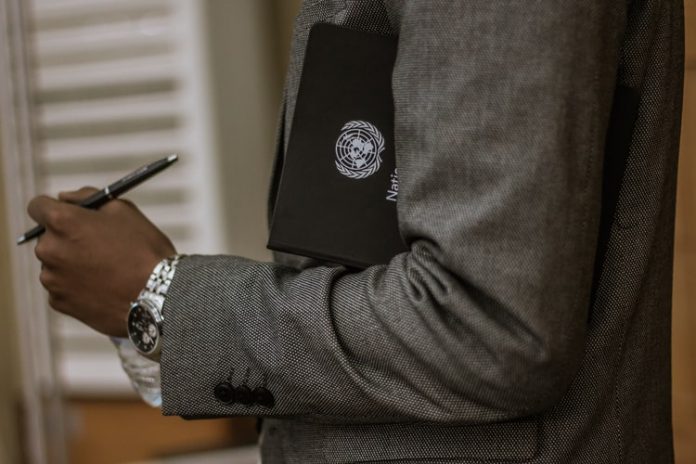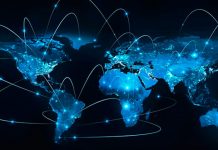This Article is written by Charul Mishra, a student pursuing B.A.LLB from Symbiosis Law School, Hyderabad in this Article. In this article, the author has dealt with the role of the United Nations and International Law in containing the Coronavirus Pandemic.
Table of Contents
Introduction
At the end of December, the World Health Organization (WHO) was told that multiple cases of pneumonia due to an unknown cause were identified in the city of Wuhan which is China’s, Hubei Province. The Chinese authorities acknowledged and confirmed the news at the beginning of January stating that they have detected a new virus called COVID-19 or coronavirus. They said some viruses are causing diseases ranging from the common cold to more serious diseases such as pneumonia.
Respiratory symptoms, fatigue, cough, shortness of breath, and breathing problems are typical symptoms of this infection. This can cause more serious problems, such as pneumonia, extreme acute respiratory syndrome, renal failure, and even death. This strain of the virus was never identified in any human being previously. The World Health Organization later declared the outbreak of COVID-19 a global pandemic, on March 11. This generated an urgent need for the International bodies’ assistance in fighting the pandemic.
Timeline of the contribution given by United Nation in containing COVID-19
Before the declaration of Pandemic
The World Health Organization itself released advice for global travel and trade in connection with the outbreak of pneumonia caused by the novel COVID-19 virus in China in early January 2020. By the end of January, the World Health Organization released the interim recommendations for the Member States on the Global Surveillance of Human Infection with Novel Coronavirus (2019-Nov).
The main objective of this strategy is to help the Member States, adopt existing monitoring mechanisms or to implement new monitoring mechanisms for the COVID-19 cases to the WHO for global surveillance purposes. Also, the members and the advisory board of the WHO emergency Committee who tried to determine whether the COVID-19 virus comes under the Public Health Emergency of International Concern (PHEIC). Although this step was much needed, few members thought that it is too early to declare Public Health Emergency as it has not spread to a greater level yet.
Later, it was confirmed that the transmissions from one human to another has spread to a great level not only in Wuhan but also in other cities of China. Not only this, but the virus had also spread in the various regions of other countries because of human to human transmission due to the continuous movement of people from one place to another. Till that time, the researchers could not find the intensity of transmission of the virus and their stay in the human body.
These details were updated in the advice of international traffic. The International bodies advised the nations and their representatives to have a proper entry screening process at the borders and the airports of the countries. Later, The Director-General of the World Health Organization declared that the COVID-19 outbreak is a Public Health Emergency of International Concern following the suggestion of the second meeting held by the Emergency Committee of WHO.

After the declaration of Pandemic
In February, the World Organization for Animal health with the Food and Agriculture Organization agreed in a few guidelines and named the disease COVID-19. They updated the World Health Organization recommendation for the use of international traffic and published them on 29th February 2020.
Later, the United Nations released around 15 million USD from the Central Emergency Response Fund to help the nations where the impact of COVID-19 was very deep. They also launched the COVID-19 Solidarity Response fund to make it simple for the body corporates, individuals and the institutions to defeat Coronavirus pandemic.
By the end of April 2020, the United Nations after uniting with various Partners launched the access to COVID-19 Tools Accelerator which is a global collaboration to accelerate the production and development of the New Coronavirus diagnostics, therapeutics and vaccines through equitable access. Later, the Secretary-General of the United Nations Antonio Guterres launched the Global Humanitarian Plan for COVID-19. Further, he called for an immediate global ceasefire for all the leaders and the nations of the world. By this time, the World Health organization announced the launch of the COVID-19 Solidarity Response fund which aimed at making it easier for the corporation, institutions, and the private individuals to fight together with the pandemic.
Role of International law and governance in defeating Coronavirus
There is a huge role of International law and governance in the fight with Coronavirus. These bodies which especially includes World Health Organization and United Nations, play an important position by helping countries to prepare and respond, by providing accurate information and busting dangerous myths, by ensuring that the vital medical supplies reach the health workers and medical experts, by training and mobilizing the health workers, by searching a vaccine for COVID-19 as soon as possible and by making schemes for the people who are most vulnerable and poor.
Releasing of Strategic Preparedness and Response Plan
The WHO has released a Strategic Preparedness and Response Plan for COVID-19, which outlines the major actions that countries need to take, and the tools required to execute them. The plan, which is updated as fresh research and data, enhances WHO’s understanding of the virus’ characteristics and how to respond, acts as a guide to country-specific plans in development. The six regional offices of the health agency, and 150 country offices, work closely with governments around the world to plan their health systems for COVID-19 ravages and to respond effectively when cases arrive and start mounting.
Releasing of Solidarity Response Fund
WHO has developed the COVID-19 Solidarity Response Fund with partners to ensure that patients receive the care they need and that the frontline workers receive vital supplies and information and to speed up research and development of a vaccine and therapies for all those who need it.
Providing with accurate Information
Apart from this, the internet is filled with information about the pandemic, some information is accurate while others are misleading or fraudulent. WHO is providing reliable, practical advice amid this “infodemic”, as is called by the United Nations, which can help save lives. This involves about 50 pieces of technical advice for the public, health workers and countries, with evidence-based guidelines on each aspect of the response, and hazardous myths bursting. More than $800 million has been pledged and raised for the response so far with various contributions from states, the private sector, and individuals.
Providing with experts in Health agency
The WHO ensures that the response is as detailed, credible and comprehensive as possible, the health agency worked with their experience from the global network of health professionals and scientists, including epidemiologists, physicians, and virologists. WHO has set up a team to provide people access to timely, reliable, and easy-to-understand advice from trusted sources to ensure knowledge is right and helpful. Additionally, regular situation reports and press conferences, as well as policy reports keep the public aware of the latest news, facts, and evidence.
Providing life-saving equipments and Health Products
Personal protective equipment is necessary if health care workers, including their own, want to be able to save lives. To date, more than two million items of personal protective equipment have been delivered to 133 countries by WHO and more are planned to ship another two million items in the coming weeks. More than one million diagnostic tests were delivered to 126 countries, across all continents, and more are being imported. Yet, even more, is needed, and the World Health Organization is collaborating with the International Chamber of Commerce, the World Economic Forum, and others in the private sector to increase the production and delivery of vital medical supplies.
The main goal of the WHO is to train millions of health workers, through its OpenWHO platform. Thanks to this online platform the Company and its main partners are passing life-saving information to frontline workers. Users engage in a worldwide network of social learning focused on immersive, online courses, and resources that cover a variety of subjects. OpenWHO also acts as a platform for the rapid exchange of knowledge in public health, and in-depth discussion and input on key questions. More than 1.2 million people have already studied in 43 languages so far. Nations are also backed by experts, stationed by the WHO Global Outbreak Alert and Response Network (GOARN) around the world.
Lastly, Laboratories are carrying out tests in many countries which, it is hoped, will eventually lead to a vaccine. In an attempt to corral these efforts, in February, WHO put together 400 of the world’s leading researchers to establish targets for research. The World Health organization conducted an international clinical trial, named “Solidarity Research,” involving 90 countries to help find a successful treatment. The aim is to quickly find out if any existing drugs can delay disease progression, or improve survival. To better understand the virus, the WHO has developed research protocols that are used in a structured way in more than 40 countries and some 130 scientists, funders, and manufacturers.
Need for strategies to control problems beyond the purview of the UN and WHO
There are a few concerns that are yet to be understood. There are various issues concerning Human Rights, International trade, the Securitization of Pandemics, and the Pandemic Emergency Financing Facility. Even after managing the medical facilities and transport of the essential items from one place to the required place, they’re still a need for complex strategies to deal with the above aspects. In the case of human rights, in the past, PHEIC declarations by the WHO director-general have included suggestions to place persons in isolation or quarantine. But this is not enough.
Health safety measures to normalize his or her life has become necessary as the person has to survive as well as his family. With the rules of isolation, various jobs are at stake and thus people are becoming unemployed and helpless. Concerning trade and commerce of the world, the impact on globalization is going to be very harsh in this coming time due to the present scenario. Now, it becomes crucial for the international bodies to suggest all the nations the required steps or strategies so that the recovery of the loss can be done within less time.
Apart from this, the international protection against pandemic threats also has a security dimension. Many states now consider the destabilizing effects of communicable diseases in this light. The fear of bioterrorism much contributed to the introduction of the matter of security into the field of international health. It brings in the powers of the UN Security Council and appeals to a broad range of actors and resources, which can then be streamlined towards the WHO and its mandate. At the same time, it does carry the peril of the security logic taking over what are, strictly speaking, health concerns, not to mention privileging the priorities of the developed countries.
Conclusion
The global spread of COVID-19 has put United Nations and international law and governance on pandemic response and related legal fields into the limelight. International law is not the main instrument for fighting the virus. Indeed, the role of anything international seems uncertain in this crisis. The rationale deployed by states often seems to be quite selfish on their part while the thought that they are all in this together equalizes them in present times. From the above article, it can be very well understood that nations altogether play a very important role in fighting with the global pandemic.
This article has shown international law, and in particular, the World Health Organization and United Nations and has set out several relevant issues that are taken care of by this expertise. The concrete WHO input into the coronavirus pandemic has significant legal consequences. Not all countries have followed all of the rules, all of the time. Thus, without the framework provided by the WHO and UN, the various responses by the many countries under high pressure would be even more diverse and the degree of uncertainty would be even higher.
References
- https://www.who.int/dg/speeches/detail/who-director-general-s-opening-remarks-at-the-media-briefing-on-covid-19—11-march-2020
- https://www.who.int/docs/default-source/coronaviruse/covid-strategy-update-14april2020.pdf?sfvrsn=29da3ba0_6
- https://www.who.int/who-documents-detail/access-to-covid-19-tools-(act)-
LawSikho has created a telegram group for exchanging legal knowledge, referrals and various opportunities. You can click on this link and join:
 Serato DJ Crack 2025Serato DJ PRO Crack
Serato DJ Crack 2025Serato DJ PRO Crack










 Allow notifications
Allow notifications


